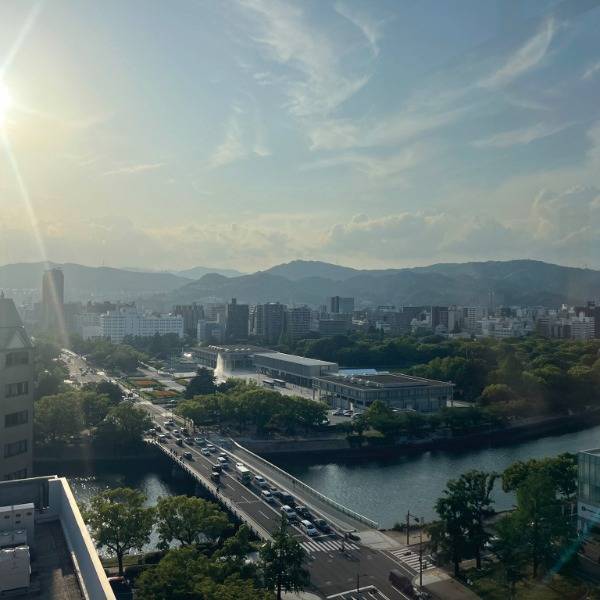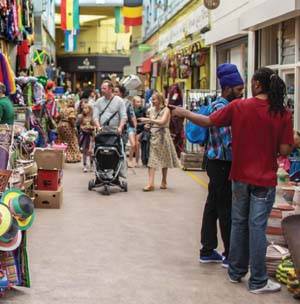Staying with a cousin in Johannesburg in September 2003, I was taken to the Hector Pieterson Museum in the township of Soweto. As words on a low stone wall tell the visitor, this site honours the young people who "gave their lives in the struggle for freedom." Hundreds of them were killed on and following June 16th 1976, when around 15,000 schoolchildren took to the streets to protest against the imposition of Afrikaans as a means of instruction in their schools.
Hector Pieterson was 12, one of the youngest to die when police opened fire in an event which came to be called the Soweto Uprising, creating a massacre which made headlines around the world.
Today, much of this story and its aftermath is written in children's words inside the museum, opened four years ago, which bears Pietersen's name. Most say they were afraid of armoured vehicles, Hippos and Casspirs, and especially of those disguised as white delivery vans. But they were not afraid to die. This is written many times, simply, and with no explanation.
Why not, I wondered? And why, after daily killings, after the massacre at Sharpeville, after decades of cruelty and torture, would teenagers risk death over a language? And what has happened to them since?
Returning to the UK, I tell my bewildered editor - who thought I was on holiday - that a book must be written. The 30th anniversary of this event is coming up. And no, I cannot tell her its precise relevance to the UK now, but trust me, I will soon. And then I was back in Soweto.
In Orlando West, the locality where the uprising began, my research is helped by Neo, the landlady at the B&B, who seems to know everyone.
News of the book I am writing gets around. People come to the door with daily offerings for it: precious cargoes of letters, poems and newspapers from those times; reminders of when words were burned, banned, and literally died for.
Through these testimonies, the relevance of Soweto's story swiftly becomes clear.
For despite the cruelly pared-down nature of what was termed 'native' or 'Bantu Education', with black children 60 to a classroom, a handful of books between them, the reason they marched that day was for a singular purpose - to keep their minds.
Nurtured mainly by grandmothers, leading lights of the class of '76 had a deep sense of moral and cultural identity, which they believed lessons in Afrikaans would take away.
They also liked learning in English, which gave a window onto the outside world.
Afrikaans did the opposite. It reduced their humanity, closed them down, and they decided being taught in it would rob them of their ability to think for themselves. It was against this possible mind-theft, this loss of identity, that they went to the wall, and onto the street.
Even more remarkable is what happened to many of them next. Fleeing the country, they would be gone for 14 years, until Mandela's release in 1990 made it seem safe to come home.
Some took up UN scholarships, scattered around the world. Others of the class of '76, having fled one tyranny, found themselves in the grip of another. Many would be tortured and imprisoned by their own side in the ANC camps in Angola, caught up in the tail end of the Cold War.
Living in Soweto now, some of these people are angry, having returned to a country that honours what they did as bright children, but which cannot accept the mature, questioning adults they have become.
They know too much and those I speak to are especially critical of the present regime and the large gap between rich and poor. As one journalist says: "Corruption in South Africa is less than in most countries in Europe, but here we cannot afford it. This country cannot afford to have such a big gap between rich and poor."
Soweto today reflects this gap. Millionaire housing in 'high-bug' Dube sits next to squatter camps with no electricity and one toilet and water tap between 100 people.
But word on the street is of change. President Mbeki has three years to run - time for people to prepare for something better. There is talk of 'real' democracy at last.
On my last visit in January, staying at Neo's as usual, we went to one of her favourite watering holes. There, in a loud mock-pained voice and a wink in my direction, she says: "It tells you something about this country when the men in the shebeen want to talk about democracy and not to dance."
Let us hope they hit the dance floor soon.
Carol Lee's account of the uprising and its aftermath, A Child Called Freedom, is published in the UK by Century on May 4 and in South Africa in June

